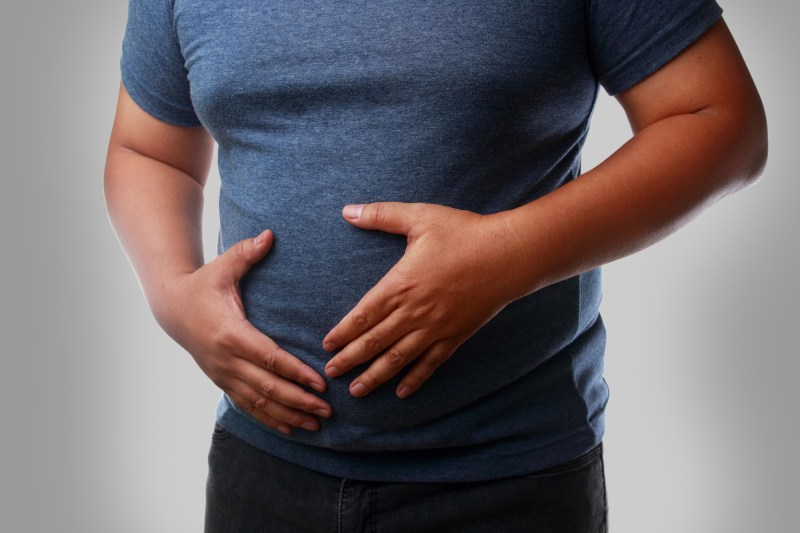Are you a fan of green tea and its many perks? If you are looking to take things up a notch, you may want to consider green tea extract instead. As a nutritionist and health enthusiast, I always look for natural ways to improve my supplement routine. So, are the benefits of green tea extract really better than those of just drinking green tea?
There is a difference between green tea and green tea extract, and I’ve broken down the differences for you. We’ll also discuss how green tea extract benefits you and some potential downsides so you can see if it’s right for you.
How is green tea extract different from green tea?

Simply put, green tea extract is a concentrated form of green tea made by removing the water content. This results in higher levels of active compounds like catechins and antioxidants.
While green tea is consumed as a beverage, green tea extract is generally used as a supplement rather than a beverage. Taking green tea extract provides a more potent dose of the beneficial compounds found in green tea, typically in smaller amounts — this is thought to offer more concentrated benefits. Compared with green tea extract, green tea contains lower concentrations of caffeine and other compounds, making green tea a milder option for regular consumption.
Is green tea extract better for you than tea?

Both green tea extract and green tea offer health benefits, making each a good choice. They differ in how they are consumed and absorbed, so you may prefer one form over another.
As I mentioned, green tea is a natural beverage with a lower concentration of beneficial compounds, making it gentler on the stomach and ideal for daily consumption. In contrast, green tea extract delivers more concentrated doses, which may lead to faster effects. However, this also increases the risk of side effects with high intake. While green tea is easy to incorporate into a daily routine, the extract is often used for specific health purposes, which is why it is typically taken in supplement form.
Five benefits of green tea extract
Boosts metabolism

There are claims that green tea extract can help increase fat burning and metabolism. The active compounds, particularly catechins, promote thermogenesis, the process by which the body burns calories for heat. According to an NIH article, “A number of studies have observed positive effects of GTE on fat metabolism at rest and during exercise, following both shorter and longer term intake.” However, it also mentions that more studies must be conducted to understand its effects fully.
Rich in antioxidants
Green tea extract is packed with antioxidants, especially catechins like epigallocatechin gallate (EGCG). These antioxidants help protect the body from oxidative stress and damage caused by free radicals, supporting overall health and potentially reducing the risk of chronic diseases.
Supports heart health
The compounds in green tea extract may improve cardiovascular health by lowering blood pressure, reducing LDL cholesterol, and supporting better blood vessel function. This can possibly lower the risk of heart disease and stroke in the average person.
Enhances brain function
Green tea extract has been shown to have the potential for enhancing cognitive function, improving memory, and providing neuroprotective effects. It may also help improve focus and mental clarity.
Promotes healthy skin
The antioxidants in green tea extract may help reduce skin inflammation, protect against UV damage, and promote a healthy complexion.
How much green tea extract should you have?

The product you choose will typically list a recommended dosage, but keep in mind that how much you take can depend on your individual needs. Generally, the suggested dose ranges from 250 to 500 milligrams per day, including around 50 to 100 milligrams of EGCG (the key active compound). However, no matter your reasons for taking it, it’s important to follow the manufacturer’s instructions, as concentrations can differ.
If you haven’t taken the extract before or are sensitive to caffeine, try starting with a lower dose to assess your tolerance. It is always recommended to consult a healthcare provider before starting supplementation of any kind, especially if you have underlying health conditions or are taking other medications.
Are there any downsides to green tea extract?

While green tea extract offers several health benefits, which we covered earlier, there are some potential downsides. High doses can lead to side effects such as headaches, digestive issues, or liver damage due to concentrated compounds like caffeine and EGCG. Taking excessive amounts may also cause insomnia or anxiety in sensitive individuals, and some people may experience stomach upset or nausea, particularly if the extract is taken on an empty stomach.
Additionally, green tea extract can interact with certain medications, including blood thinners and stimulant drugs, so it is very important that you seek guidance from a healthcare provider before taking it.
Frequently asked questions

Is it OK to take green tea extract every day?
Yes, it’s generally safe to take green tea extract daily in moderate amounts. However, excessive intake can cause side effects like digestive issues or liver stress due to high caffeine content or concentrated compounds, so adjust your intake or stop altogether if you have any concerns.
Who shouldn’t take green tea extract?
Green tea extract may not be suitable for individuals with liver problems, heart conditions, or those sensitive to caffeine. Due to potential risks, pregnant or breastfeeding women should avoid it. It may also interact with certain medications, such as blood thinners. Always consult a healthcare provider before use.
Should I take green tea extract in the morning or at night?
It’s generally best to take green tea extract in the morning or early afternoon, as its caffeine content may interfere with your sleep schedule and quality if taken too late. Taking it earlier can also provide an energy boost and support metabolism throughout the day.




